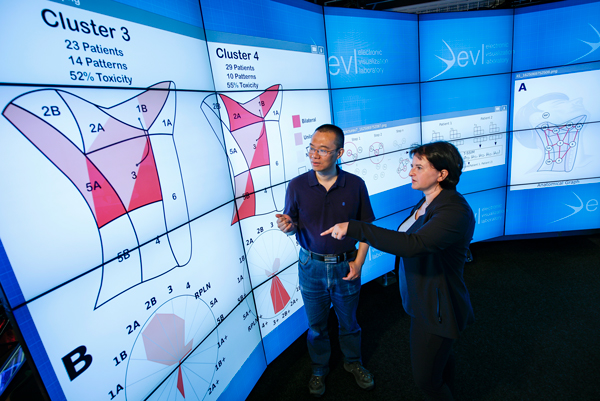Better AI for better decisions

Chemotherapy and radiation can be effective means of treating cancer patients, but knowing exactly when and how to implement these treatments is crucial to their success.
To help oncologists make better assessments, a team of UIC computer scientists is developing a scalable artificial intelligence system based on real patient data that would serve as a decision support tool for the M.D. Anderson Cancer Center in Texas.
The AI is designed to help physicians make more informed decisions that are grounded in real-world information. The system would allow them to play out different treatment scenarios and to better predict outcomes by narrowing the computational analysis to patients in the data with similar characteristics—the same tumor type, for example. Both approaches could maximize the efficacy of treatment and improve survival outcomes while minimizing side effects.
To develop the technology, the team—including principal investigator Liz Marai and co-investigator Xinhua Zhang from UIC and data mining specialists from the University of Iowa— collected data on symptoms, cancer stage, tumor type and location, prescribed treatments, and medical images. Researchers processed this data repository and used it to train a prototype AI system.
“When a new patient arrives, the AI model can consult that knowledge and the new patient’s data and determine what treatments might work best, without having to rely on physician memory,” Marai said.